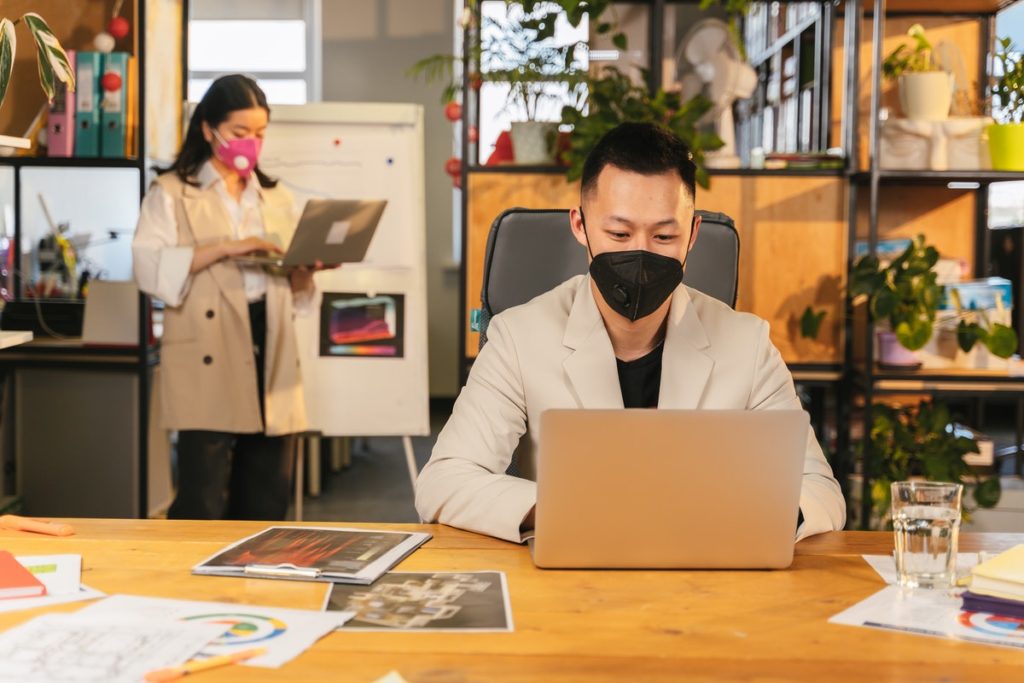The COVID-19 pandemic highlighted how offices can become a hotspot for disease spread. This doesn’t come as a surprise. Experts have long been warning about how offices, with their close quarters and constant comings and goings, can be a breeding ground for disease-causing viruses and bacteria.
The spread of diseases in offices didn’t just happen during the pandemic. The flu, coughs and common colds, and other bugs have been going around workplaces for decades. However, with the outbreak of a potentially deadly pandemic, many employers became more aware of how their employees’ office habits could help or hinder their health.
The good news is that employers can play a central role in preventing the spread of illness in the office. By following a few simple rules, employers can help their staff stay healthy and productive.
Promoting Good Hygiene Habits
Employers can take steps to protect employees from illnesses. One of these steps is to promote good hygiene habits. This may seem obvious, but many employees fail to practice basic hygiene at work.
In order to prevent illness from spreading, employers should take the time to educate their staff about good office hygiene and help them develop a habit of practicing it. For example, if an employee is already experiencing symptoms, they should cover their nose and mouth whenever they cough, wash their hands frequently or use alcohol-based sanitizers, and wipe their table, keyboard, mouse, and other items that they have touched. Other employees should also take precautions by frequently washing their hands, avoiding touching their faces, and cleaning frequently touched items.
Employers may also consider offering disposable sanitizer wipes to employees for them to clean their workspaces. They can also set up hand-washing stations throughout the office.
Providing Adequate Sick Leave
There are some sick leave policies that employers should avoid practicing because these actually encourage employees not to take of themselves when they get sick. Employees may be more likely to go to work if they have a financial incentive not to stay home.
Employers should set up a sick leave policy based on their industry and needs. Employers should also inform employees about the benefits of staying home when they are feeling ill so that they can take time off without worrying about losing significant amounts of money.
To prevent sickness from spreading in the office, employees must know that there is no penalty for staying home when they get sick. Employers should allow them some flexibility with regard to their earned paid time off (PTO) or other types of sick days. When employees do come into work while feeling ill, employers would do well to remind them of all the precautions they could take to prevent the spread of illness.
Providing Adequate Ventilation
Ventilation is also an important measure that employers can take to prevent illness from spreading. Good air circulation will help remove germs and bacteria in the office. It will also make it easier for employees to breathe, especially if they are suffering from allergies or respiratory illnesses.
Employers can improve ventilation by ensuring their heating, ventilation, and air conditioning (HVAC) system is working as it should. Employers should aim to let in plenty of fresh air and circulate it throughout the workspace, rather than recirculating the same stale air over and over again.
Employers should make sure that their ventilation system has been properly maintained to filter out impurities from the outside air before circulating it through the office. They need to conduct regular furnace duct cleaning to prevent dust accumulation which will only lead to Sick Building Syndrome (SBS).
Encouraging Vaccinations

Influenza and other viruses can cause severe pandemics that employers must be prepared to manage. The COVID-19 pandemic is a good example of how important it is for employers to protect their employees from catching dangerous diseases in the workplace. In order to do so, they should consider encouraging vaccination among staff members.
Employers should consider offering free vaccinations or incentives such as gift cards or movie tickets for employees who agree to get vaccinated against certain diseases during flu season. This will help them protect themselves against dangerous illnesses while reducing the likelihood that they will infect others at work. It’s a small price to pay compared with losing a significant number of people because they all came down with the flu.
Employers have the responsibility to make sure that the workplace isn’t a breeding ground for germs. These tips should be helpful for employers that are seeking to create a positive impact in the health of their employees.

